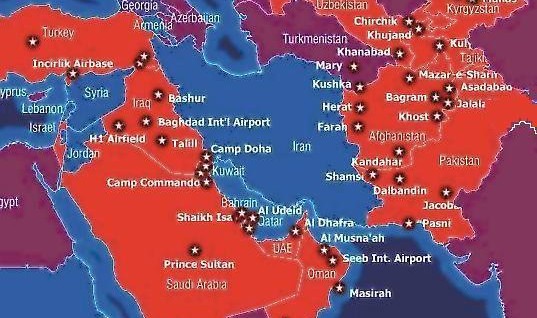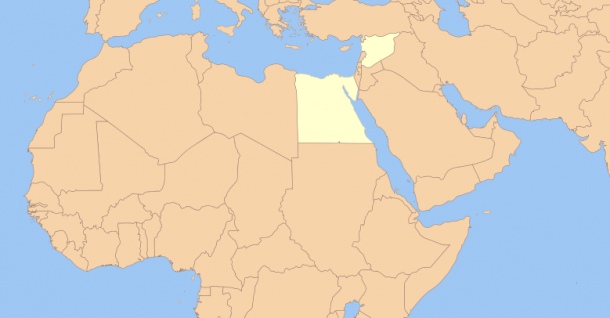Despite a large scale of political confrontation in Bahrain since 2011, the Western media agencies did not pay decent attention to this matter. And even if a light is shed on some processes, the picture is restrained and narration is lop-sided.
As a rule, international human rights organizations deal with egregious violation of human liberties. At the same time, large Western media withhold what happens in Bahrain.
While exploring the issue of covering the domestic political conflicts in Bahrain, it has a sense to look through a situation in the national mass media. Bahrain has a few non-state media. First of all this is Akhbar Al-Khaleej – one of the oldest Arabic dailies founded in 1976. However, obviously this publishing has become out of date. Since its founding, the daily mainly takes up the problems of Arab nationalism. However, the situation in Bahrain is shaken by another sort of problem, primarily, related to sectarian contradictions and shunning of human rights. Another powerful mass media is Al-Ayam, the newspaper with liberal views. There is also the private newspaper Al-Bilad, which displays interests of the ruling minority.
Until recently the most important (and furthermore, dangerous for the dominative dynasty) media source was Al-Wasat newspaper. This newspaper intrinsically became a megaphone of Al Wefaq political alliance – the main opposition in Bahrain. The alliance stands upon the rights of the Shia majority and brings thousands of supporters to the meetings and marches, which oftentimes, are dispersed by police and army, and once in 2012 by the Saudi troops. The popularity of Al-Wasat caused the shutdown of newspaper by the government some time ago.
There are also a few English-language media and several offices of all-Arab channels and periodicals in Manama. At the same time, it is worth understanding, de facto, despite its appearance, there is a lack of press freedom in the kingdom. Any submission of information is considered “an information warfare” between authorities and opposition presented by the majority of the country’s population.
***
It is remarkable that international media in Bahrain is put on a war footing. For example, on 1st of February, 2015 Al Arab channel, owned by the Saudi billionaire Al-Waleed bin Talal (with estimated net worth of US$ 23,3 billion), was suddenly closed after a day from its first broadcast in Bahrain.
Firstly, it was said that the channel is phased down due to administrative and technical problems. A spicy bit of the event is that the Bahraini minister of information affairs participated in the open day of Al Arab, but after a week from the date of its shutdown, it was said that the channel “is not licensed to continue the broadcast”. However, the fact that Al Arab was removed from Bahrain because of the interview with the Al Wefaq’s activist Khalil al-Marzooq is obvious for the public. The oppositionist talked about involuntary termination of Bahraini nationality for more than 70 individuals. Giving floor to the opposition became the genuine cause of administrative offense on the Saudi channel.
***
But the way, involuntary termination of nationality is the favored method of punishment of Bahrain’s authority in relation to undesirable journalists and opposition mass media activists. Human rights organizations regularly report the corresponding information. This makes it impossible for citizens to cooperate with international media, claiming to give an impartial analysis. Even when this kind of cooperation happens, the picture is given in “the right way” associated with the government’s point of view.
This gives way to conclude that biased coverage of the internal processes in Bahrain by the western press happens not only because of the cooperation between Manama and the USA, NATO, as well as location of the United States Fifth Fleet in Manama. It is true that tight relations between Americans and the Bahrain authorities affect the coverage of the national policy. Activists say, “most of the USA news media simply ignore the struggle in the country”. According to them, “American media with their double standards pursue only their own interests”.
Representatives of international human rights organizations stress that the UK and the United States support the regime in Bahrain, ignoring the critical situation in human liberties protection because of a peril to lose military bases. It is noted that “the United States Fifth Fleet is located in Bahrain. Moreover, it is known that the Great Britain uses military bases in Bahrain. Add to this petrodollar dollar of Saudi Arabia… Of course, this will signify”.
***
To be fair, it should be noted that Bahraini authorities also reproach the opposition with dishonesty, as they perceive it, actions in media. According to editor-in-chief of the pro-government Al-Bilad newspaper Moanes Al Mardi (who takes a position of the head of Bahraini Journalists Association as well), opposition media like Al-Wasat and social network accounts of government’s assailants often pursue the aim “to embroil Bahraini society”. For example, he says that while publishing news about photographers getting to jail, malcontents forget to mention that these people were sentenced for crimes, but not for their professional activities.
At the special press conference dedicated to Al-Wasat, Mr. Al Mardi commented its closure as a result of publishing false information. In particular, journalists posed photos made in Palestine as shots taken in Bahrain. The official also criticized the Al Wefaq, pointing that despite its standing for democracy principles the alliance is guided in an undemocratic way, and all control levers belong Ali Salman, the head of the alliance.
This would not be a surprise to hear about it from real independent journalists. But taking into account Al Mardi’s position and his unconcealed pro-government propaganda (for instance, nobody is to be detained for reasons of politics), one can say that he is none other than “an officer of information front”, though of high standing.
***
It is interesting and revealing to explore methods and a course of Bahraini “information chess game”. However, one cannot slough off that each false report and “half-truths” hide the violation of human rights, oppressed freedoms, ruined health and even lives. Unfortunately, people still perish, and some journalists in word and deed, under compulsion and voluntarily support the reign of repression and outrages in the country.
Although, the only truly moral position for a media man is objectiveness, which is the basic principle of journalism (not propaganda or PR) in this kind of confrontation. The very objectiveness at the end may become even stronger than authorities’ pressure, stronger than arbitrariness and deception. As history shows, the objectiveness undergoes it all.
Anton Evstratov, political analyst
Muslim Politic
![Электронный журнал [Электронный журнал]](/magazine.static/magazine-front.jpg)




